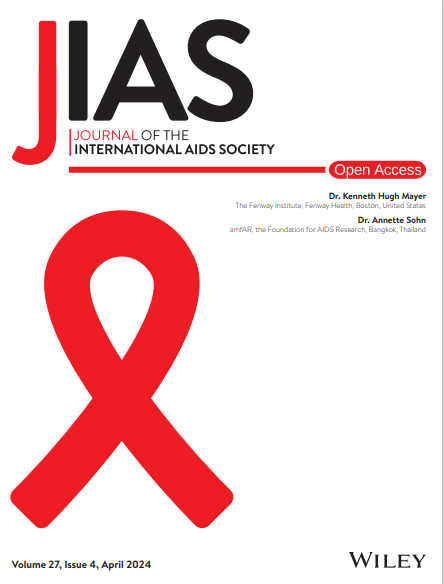Mental health and cognition in relation to adherence to antiretroviral therapy among people living with HIV in Kazakhstan: a cross-sectional study
Abstract
Introduction
There is a research gap in how mental health and cognition are associated with antiretroviral treatment (ART) adherence among people living with HIV (PLWH) in Kazakhstan.
Methods
We randomly selected and enrolled 230 PLWH from the Almaty City AIDS Center registry (June−November 2019) into a cross-sectional study. We examined associations between self-reported ART adherence for the last 1 and 2 weeks; the Adherence Self-Efficacy Scale (ASES) and symptoms of depression (Patient Health Questionnaire-9 [PHQ-9]), anxiety (Generalized Anxiety Disorder tool [GAD-7]), post-traumatic stress disorder (PTSD Checklist [PTSD]); cognitive function (PROMIS v2.0 Adult Cognitive Function 8a short form) and forgetfulness (Forgetfulness Assessment Inventory). We used cut points of ≥5 for at least mild and ≥10 for at least moderate symptom severity for PHQ-9 and GAD-7 and of ≥44 for PTSD. Logistic and linear regression analyses were used.
Results
Participants’ median age was 40.0 (IQR: 34−47) with 40.9% (n = 94) of females in the sample. Those who missed at least one pill for the last 2 weeks had higher odds of reporting at least mild depression (aOR = 3.34, 95% CI: 1.22–9.11, p < 0.05); mild anxiety (aOR = 3.27, 95% CI: 1.20–8.92, p < 0.05); and PTSD (aOR = 4.04, 95% CI: 1.15–14.21, p < 0.05) symptoms. Participants who missed at least one pill for the last week had higher odds of at least mild depression (aOR = 7.74, 95% CI: 1.31–45.7, p < 0.05), moderate anxiety (aOR = 21.33, 95% CI: 3.24–140.33, p < 0.005) and PTSD (aOR = 13.81, 95% CI: 2.36–80.84, p < 0.005) symptoms. Participants with better cognitive function had lower odds of non-adherence over the last week (aOR = 0.88, 95% CI: 0.81–0.96, p < 0.005) and higher ASES scores (β = 0.26, 95% CI: 0.13–0.40, p < 0.005). Poor memory was associated with higher odds of non-adherence over the last week (aOR = 4.64, 95% CI: 1.76–12.24, p < 0.005) and lower ASES score (β = −0.31, 95% CI: −0.45 to 0.16, p < 0.005). Those who had at least mild depression (β = −0.21, 95% CI: −0.35 to −0.07, p < 0.005); moderate anxiety (β = −0.21, 95% CI: −0.34 to −0.07, p < 0.005) and PTSD (β = −0.19, 95% CI: −0.33 to −0.05, p < 0.005) symptoms had lower ASES scores.
Conclusions
Depression, anxiety and PTSD symptoms, poorer cognition, and forgetfulness were associated with poorer ART adherence and worse adherence self-efficacy. It is crucial to assess and treat mental illness and provide support for PLWH with worsened cognition to enhance ART adherence.

 求助内容:
求助内容: 应助结果提醒方式:
应助结果提醒方式:


